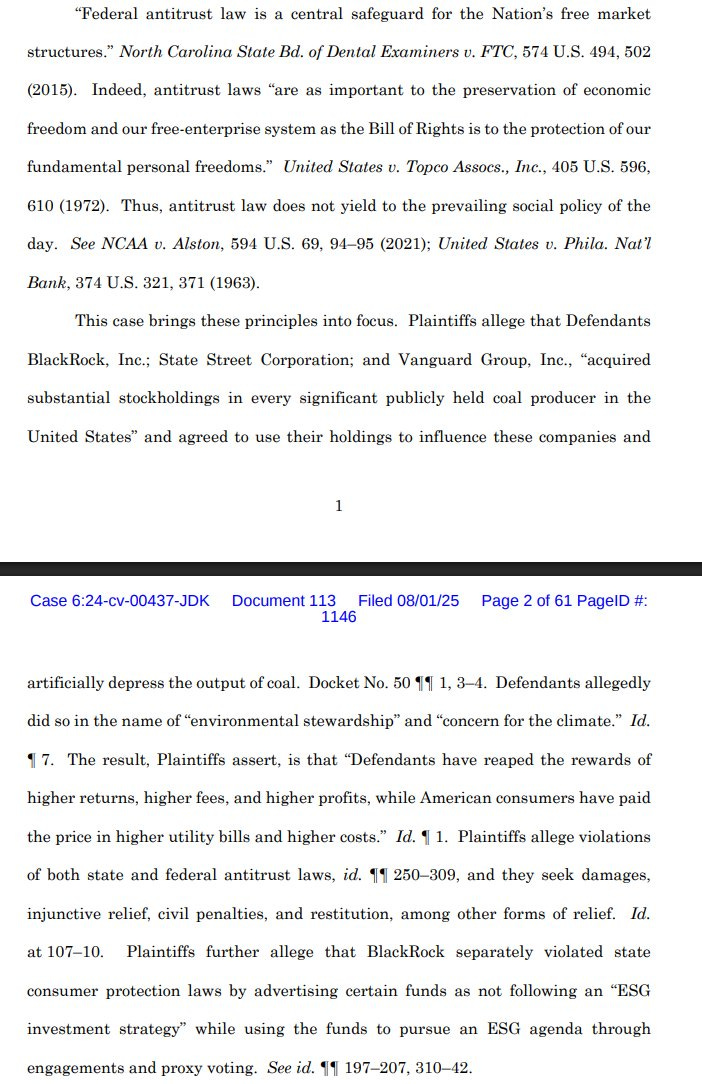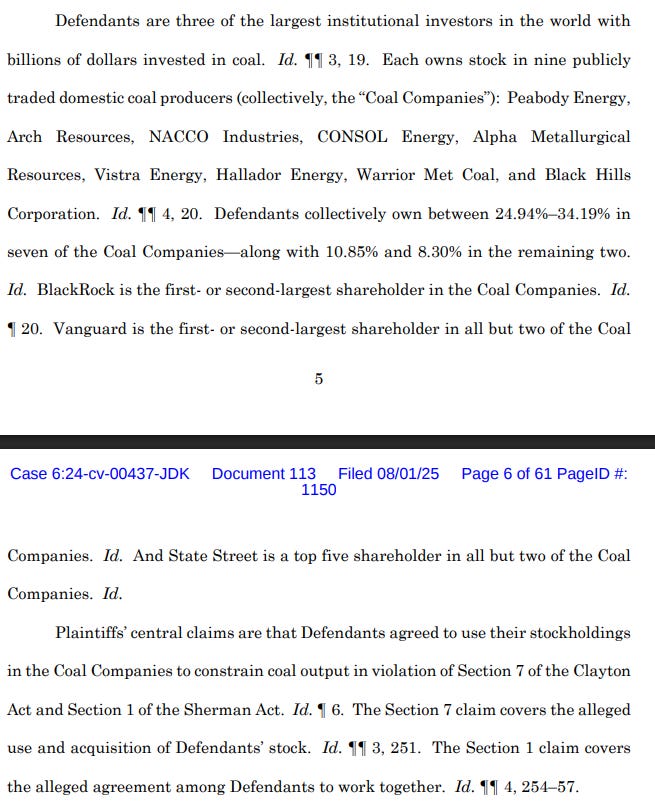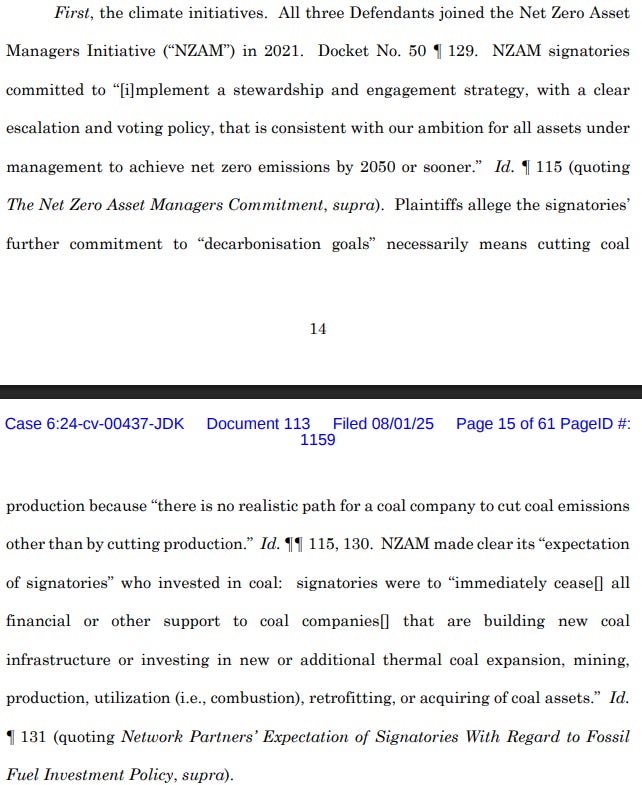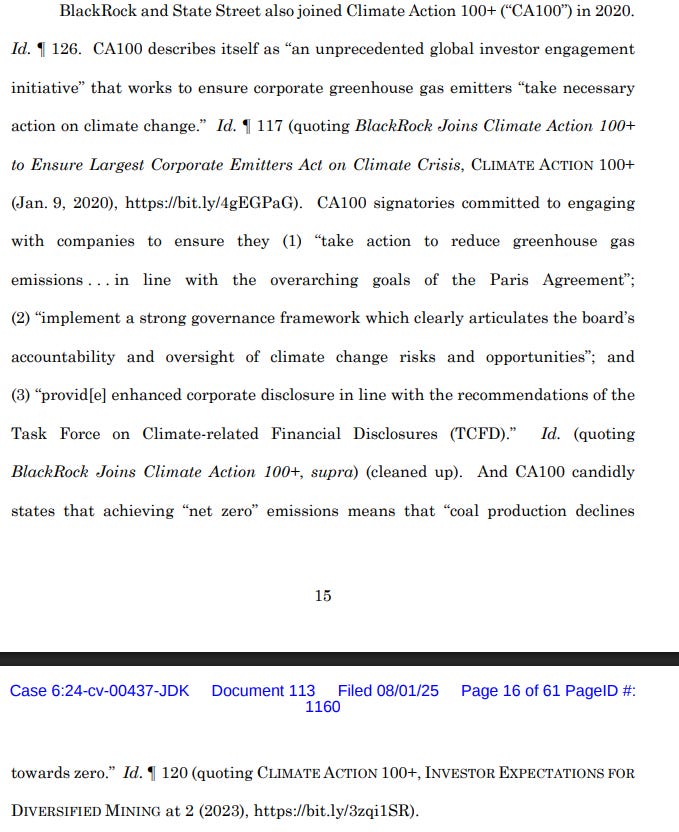BlackRock, State Street, Vanguard to face antitrust lawsuit after Texas judge allows case uncovering collusion to proceed, per court filings.
Federal judge Jeremy Kernodle in Texas has greenlit a multi-state antitrust lawsuit against major asset managers BlackRock, Vanguard, and State Street, allowing it to proceed as of August 1, 2025. U.S. District Judge Jeremy D. Kernodle mostly denied the defendants’ motions to dismiss, finding that Texas and 12 other states plausibly alleged violations of federal and state antitrust laws, as well as some consumer protection statutes. This ruling bolsters conservative efforts to challenge alleged collusion in environmental, social, and governance (ESG) initiatives, potentially redefining how asset managers pursue climate-related goals.
Case Overview
Filed in November 2024 and amended in January 2025, the lawsuit claims BlackRock, State Street, and Vanguard—managing trillions in assets—used their significant stakes in U.S. coal producers to suppress output, driving up energy costs. The plaintiff states (Alabama, Arkansas, Indiana, Iowa, Kansas, Missouri, Montana, Nebraska, Louisiana, Oklahoma, West Virginia, Wyoming) allege violations of the Clayton Act, Sherman Act, and state laws. They argue the firms’ ownership of 24.94% to 34.19% in nine coal companies led to a 19.2% drop in thermal coal and 18.2% in South Powder River Basin coal production from 2019 to 2022, despite rising prices, contrasting with privately held competitors’ increased output.
The states point to the firms’ involvement in climate initiatives like the Net Zero Asset Managers Initiative and Climate Action 100+ as evidence of coordinated efforts to reduce coal production for net-zero emissions goals. Alleged actions include public net-zero pledges, proxy voting against coal company directors, and pressuring firms to cut output. Five states also claim BlackRock misrepresented “non-ESG” funds while using them for ESG advocacy. The U.S. DOJ and FTC supported the case’s antitrust applicability in a May 2025 statement.
Key Ruling Points
Link: https://storage.courtlistener.com/recap/gov.uscourts.txed.234523/gov.uscourts.txed.234523.113.0.pdf
Judge Kernodle’s 74-page opinion rejected most dismissal motions, emphasizing antitrust laws as safeguards for free markets. Key findings:
• Clayton Act: The states plausibly showed the firms’ shareholdings reduced competition by limiting coal supply, dismissing the “passive investor” defense.
• Sherman Act: Evidence of parallel conduct (e.g., joining NZAM/CA100) and motives like reputational gains supported conspiracy claims under the “rule of reason.” Price hikes and output drops bolstered anticompetitive effect allegations.
• State Claims: Most state antitrust claims advanced; some consumer protection claims (e.g., Iowa, Texas) survived due to BlackRock’s potentially misleading “non-ESG” fund labeling, though Nebraska’s claims were dismissed due to securities exemptions.
Only three of 21 counts were dismissed, setting the stage for discovery.
Reactions and Impact
The decision sparked significant reactions. On Twitter legal commentator Eric W. (@EWess92) called it a major win for Texas AG Ken Paxton and allies, citing climate initiative commitments as collusion evidence. Posts from @disclosetv and others amplified the ruling, gaining widespread attention. Reuters and Bloomberg reported it as a setback for BlackRock’s defense against “climate collusion” claims.
The case could reshape ESG investing. A win for the states might discourage asset managers from collaborative climate initiatives, framing them as illegal trade restraints, especially in energy. Critics see this as politicizing antitrust law to hinder climate action, while supporters view it as protecting markets from “woke capital.” As discovery progresses, the lawsuit may set critical precedents for applying antitrust laws to investor activism, impacting global asset management and sustainable investing.






